Ministry Highlights June 2023 Pride Month Our Pride Photo booth was the place to be in June. So many wonderful pictures! See them all at the website gallery. Indoor "Outdoor" Worship & Potluck Rain sent the June 4 service & potluck inside, but there was no shortage of fellowship and good food! Blessings all around! (The outdoor worship service has been rescheduled for August 13.) Playing the "All the Plymouth People" game: conversations and card signing at the potluck. (Remember to turn your card in by July 2 to be in the prize drawing.) Fellowship of the Grape The May FOG (Fellowship of the Grape) broke a record with over 30 people attending. 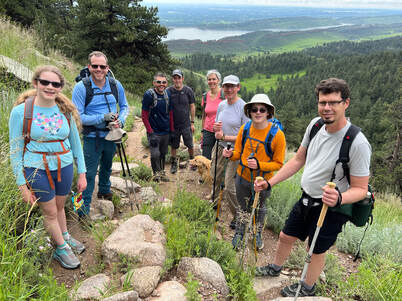 Plymouth Social Club Hike. Eight humans and one Golden Retriever enjoyed hiking and fellowship in green, lush Lory State Park Fort Collins Interfaith Council. The May meeting focused on antisemitism, which is increasing; but churches can be allies and a source of support for our Jewish communities. Learn more here. In June, the FCIC learned about emergency preparedness for disasters. More information. Do you have a ministry highlight to share?
Be part of the 4th Tuesday email. Visit plymouthucc.org/shine This past Sunday, I had the privilege of leading worship with Brooklyn McBride, Plymouth’s Director of Christian Formation. I have spent much time thinking about young people in the church, and Brooklyn oversees ministries for young people and their families.
This past Sunday, we led an intentional cross-generational worship service. Cross-generational worship refers to pairings with big age differences or engaging in embodied practices from different generations. In other words, it involves regular interaction, engagement, and discipleship between and across generations. A church service is cross-generational when the congregation shares, works and learns from each other. Most of us can say we agree with cross-generational experiences in theory, but what does that look like in practice? I have learned that this work requires intentionality and a deep interest in generational differences. Here are some things that we did to make last Sunday’s worship service cross-generational:
To listen/watch the worship service and hear Brooklyn’s sermon, click on this link: Sunday's Worship! Marta "I am a DJ. I am what I play" - from the David Bowie song "D.J." (1979) I found myself musing recently about the role of music in worship. It's a nearly moot internal discussion at this point for me, as my body has been essentially hijacked to show up at a church on Sunday morning and play music. Conduct. Something. This benign captivity began at the young age of 10 years old and is clearly not going to end until I do. Being a church musician and music director is in my blood, as they say, and it's terminal. I have no qualms about this self-diagnosis, by the way. But the initial question is still one worth exploring: what is the role of music in worship?
Music seems like a very natural choice in a gathering where the sublime aspects of our humanity — our connection with the Divine — are enticed to rise to the surface. The diverse unspoken language of music can offer us a glimpse into this mystical space. At the very least, it can be a visceral prayer without words. Different vibrations can unlock a whole world of experience in listeners, not as aural entertainment but embodied joy, love, peace, prayerfulness, sorrow, and a myriad other affects that are part of the Jesus story and God's wonder of creation. Sometimes we are not prepared to hear those frequencies, for whatever reason, but what binds all those sonorities emitted in our Beloved Community will always be intent. The questions I ask myself when programming music for worship include: Does the music accentuate and complement the minister's message and scripture reading in an empowering and nuanced way? Does the affect of the music serve the Spirit in the same fashion? For example, on Maundy Thursday and Good Friday, does not the Passion of Christ necessitate an affect of solemnity and introspection as we retrace Jesus' steps through those agonizing last days of his ministry? On Easter Sunday, the joy and triumph of resurrection can be expressed in outwardly jubilant declarations of brass and organ of course. But how about also the assured bliss of life eternal within — a quiet joy? Music plays an influential role in providing nonverbal commentary to liturgical proceedings. With the diversity of available compositions from many eras and cultures (and also in the moment improvisations!), Christian worship can be a place where we are privy to spiritual expressions from composers across time and space. It is a wonder. On the surface it may appear a church music director is some manner of ecclesiastical disc jockey of sorts. Playing the hits. Spinning our own personal faves. Get that floor thumping. Keep everyone happy and dancing! For me, a more accurate analogy is the field of film scoring. Live film scoring, that is. The story of a film dictates the music's purpose, ebbing and flowing with the drama and events on the screen. We can be moved to joy, encouraged to hope, experience truth, and even driven to tears. At any given worship service, we are comforted and also challenged by God's voice in word, song, and music within a diverse range of expressions. It is how we grow and mature as followers of Christ. The spiritual life is like that, isn't it? May the blessings of worship in sound and vision help shape us for years to come. Mark  Image: Pixabay Image: Pixabay As I was walking back to my office on Sunday after the (indoor) potluck luncheon following the (indoor) service, I felt the warm glow of love for our congregation. The potluck was phenomenal, and the “loaves and fishes effect” was in full swing with food in abundance! Somehow, all the logistical shifts we made due to the torrential rain seemed to fall into place: dedicated A/V volunteers, fabulous music, inspiring lay preachers and liturgist, our phenomenal Deacons, our revitalized Congregational Life board, and our amazing staff all worked together to make an enlivening (indoor) service and potluck lunch come off without a hitch! It all looked seamless and easy…but a large contingent of Plymouth folks was hard at work making everything happen. I was worried that the heavy rains would dampen our attendance and that we’d have a half-empty sanctuary, but it was quite full! YAY, Plymouth! When I came home, the first thing I told Jane Anne was, “I love our church.” Paul opens his first letter to the church in Corinth by saying, “I thank my God always for you, because of God’s grace that was given to you in Christ Jesus. That is, you were made rich through him in everything.” That is what I felt on Sunday. Our congregation has been enriched and enlivened by the Spirit and the wisdom of Jesus. You can feel new energy and new vitality happening in all corners of our congregation. Maybe you came away on Sunday with a similar experience of loving God and loving the people she has called together to form Plymouth. We are not perfect, “not a congregation of the sinless,” as our membership covenant replies. And yet…there is so much goodness, so much energy, so many things percolating that I cannot help but be grateful for the abundance of wonderful folks who comprise Plymouth. Paul speaks of the abundance of God’s grace given to us through Jesus Christ, and I see that in the incredibly giftedness of our congregation. I’m reading a good, challenging book by Yale theologian Miroslav Volf right now called, Free of Charge: Giving and Forgiving in a Culture Stripped of Grace. Volf speaks about God as the ultimate giver and says that we cannot return a gift to God, who has everything and needs nothing. But he does see us as a conduit for the action of God in the world. “Faith is an expression of the fact that we exist so that the infinite God can dwell in us and work through us for the well-being of the whole of creation.” He continues, “Faith is the first part of the bridge from self-centeredness to generosity.” In our culture, we see almost everything as an economic transaction, giving this in exchange for that. God’s economy doesn’t work that way, and that “gift economy” is what I saw in action last Sunday. We worked, prayed, sang, celebrated, and ate together. Together, we recognized God as the giver. And we took some of what he had given to us and turned it not toward ourselves, but toward this vibrant community of faith. And as we were cleaning up after the potluck, we saw more abundance and faith, as volunteers from our Faith Family Hospitality Ministry Team set up cots for the families without housing who are sharing our church building this week. One of the most important parts of growing in discipleship is to be part of God’s “gift economy.” Growing in faith can help us acknowledge that everything we have and are comes from God. And then to put our faith into action as conduits of God’s grace and abundance. “The gifts flow into us, and they flow from us,” Volf writes. “We are God’s gifts to our neighbors.” May we continue to grow in faith and awareness of the gifts God entrusts to us. Shalom! |
Details
|

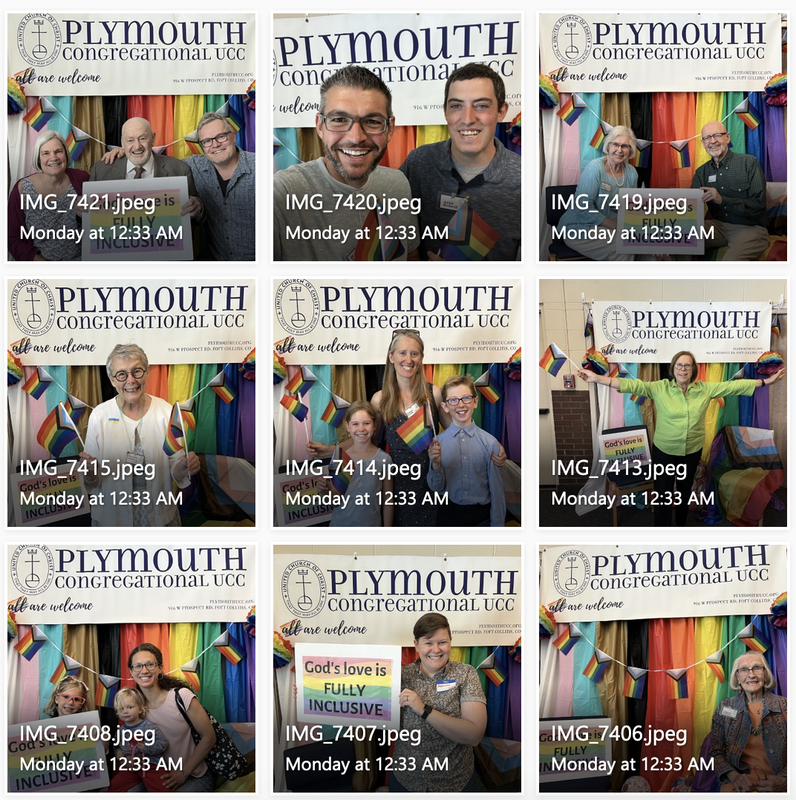
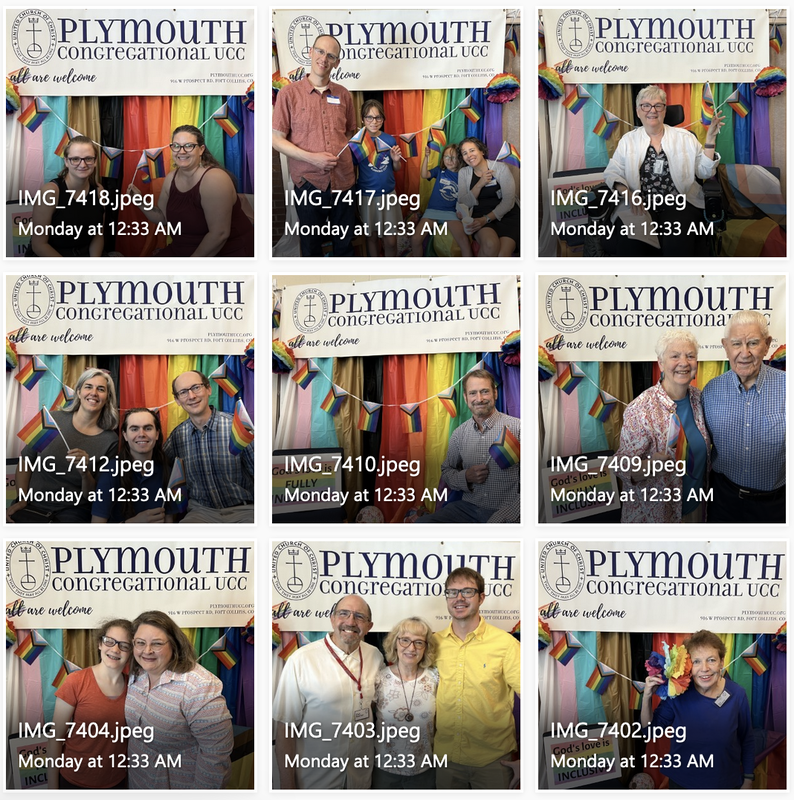
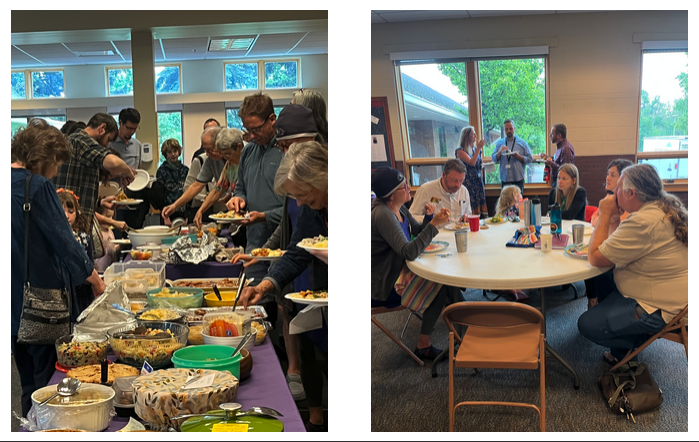
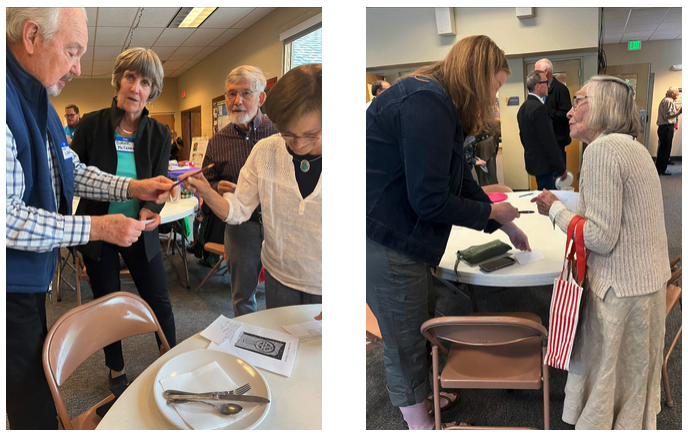
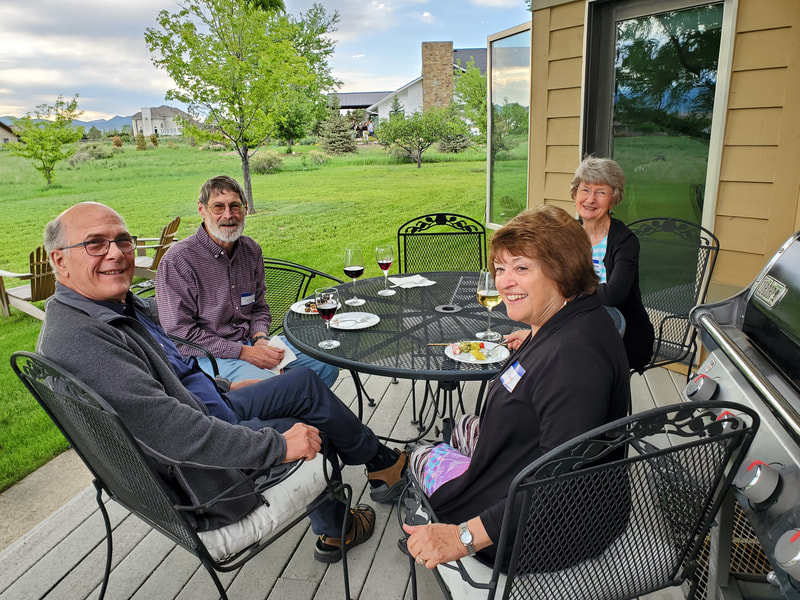
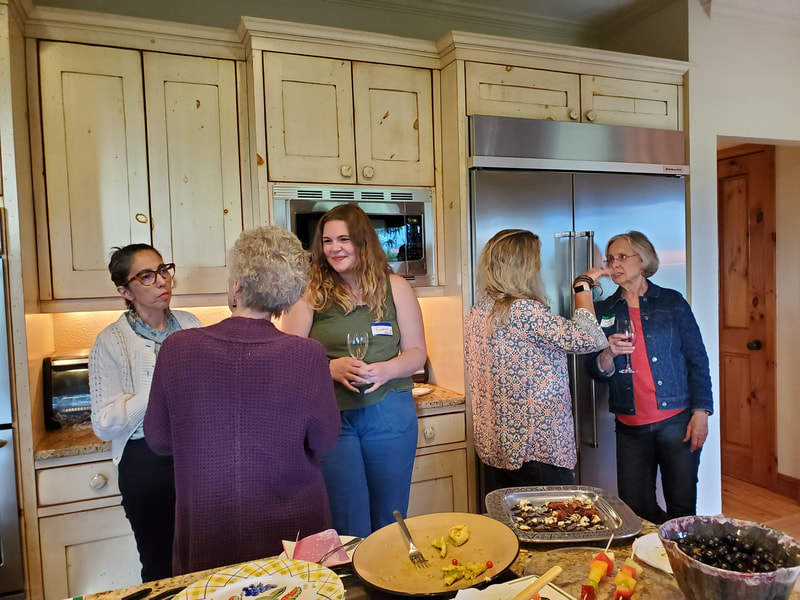

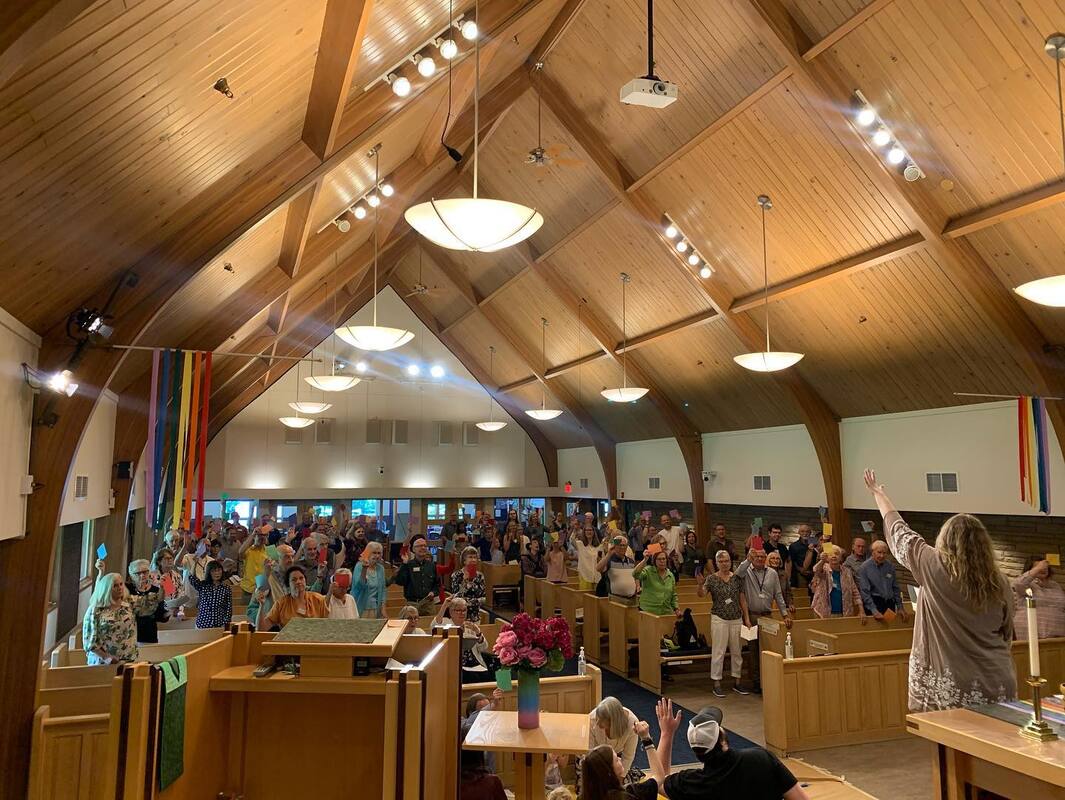


 RSS Feed
RSS Feed